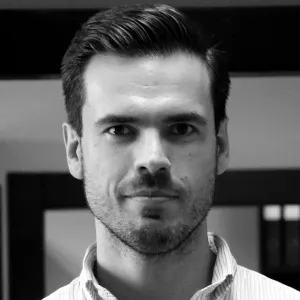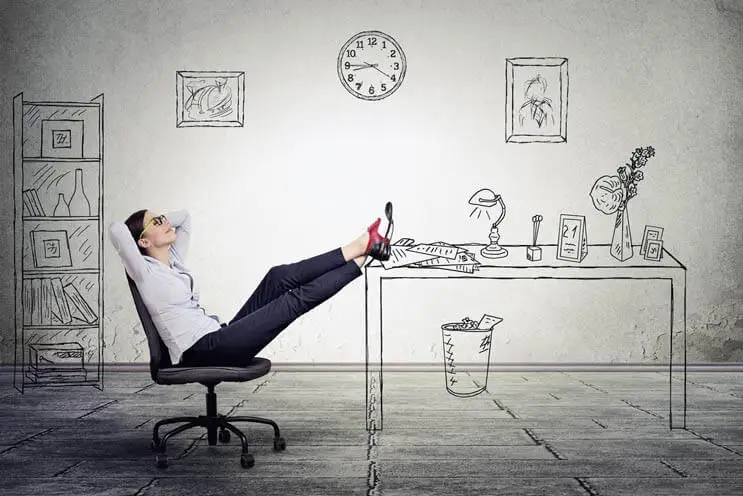Keys to Avoid Procrastination


Written and verified by the psychologist Bernardo Peña
Procrastination is the habit of postponing activities that need to be done, replacing them immediately with others that are more pleasant or not too important. This procrastination becomes a great barrier to achieving our goals, because we do not put into practice appropriate measures.
It is, in the end, a blockage toward our dreams and towards ourselves. Thus, anguish and guilt enter the scene, while we lose our self-confidence, believing less and less in our possibilities. In today’s article, we’re going to share some keys to avoiding procrastination.
The curious thing is that according to numerous cases observed, the most frequently postponed activities are those that we want to do. Meanwhile, on the contrary, tasks related to other people’s orders are the least affected by procrastination.
What leads to endless procrastination?

Excessive self-criticism is the biggest barrier to ending the cycle of procrastination and achieving our goals. This form of self-discrediting by telling ourselves that we’re not capable enough to perform certain tasks leads us to feel inferior. In some cases, depending on its severity, it can even lead to depression.
When we direct messages of this type at ourselves, we focus our attention on what we fear others will think. Hence, a profound change involves instead focusing our energy on our active participation in the situation, also in order to learn from experience.
Idealizing our goals is another frustrating habit that often accompanies excessive self-criticism. When we imagine that what we desire is simply perfect, usually sooner rather than later, reality shows us that while there may be some gains, things are never perfect.
Procrastinating out of fear of making mistakes only increases that fear. So with the intention of not making mistakes, we may tell ourselves that we will have better conditions to perform correctly later. However, in reality, our time to work in the best possible way and with the best conditions is already running out.
Within the wide range of reasons for procrastination, it’s also important to highlight difficulty concentrating, something that’s often related to the characteristics of the environment where a task is carried out.
We think you may also enjoy reading this article: 10 Negative Effects of Stress on Your Health To Keep in Mind
Possible keys to avoid procrastination

- Understand that it is possible to continue, learn, and make progress. Procrastination doesn’t need to be a way of life.
- Differentiate the urgent from the important. What is truly important to you? Seeing it in writing is more useful than it seems. It’s true that urgent situations, on many occasions, do indeed need attention at the moment. However, on many others, what we label as “urgent” tasks really aren’t.
- Divide your tasks. Putting them into practice in parts is a wise step when it comes to being more active without overloading ourselves, especially if it’s a relatively large project, whether it be medium or long-term. Simply start with one small part today. In addition to moving forward, this shows that we can slowly move toward what we want.
- Reward yourself by doing something enjoyable as soon as you finish an obligatory activity. Listening to music or going for a walk is a way of associating the new behavior with something pleasurable and increases the chances that it will be repeated.
- Modify your environment: What changes in the environment would be conducive to getting the task done? For example, working at a tidy desk tends to maintain a sense of control and make us feel calmer.
- Focus on changing your beliefs so you can learn to do what you used to put off regularly.
Like this article? You may also like to read: 5 Strategies Every Woman Should Use to Say Goodbye to Stress and Anxiety
These keys to avoiding procrastination are a schematic guide to reflect and act on your routines. However, it’s always important to remember that you are the protagonist of your life, and only you can decide when it’s time to put an end to procrastination.
In reality, the key to everything is to act against the tedium and the chain of thoughts that inhibit us from taking action. Curiously, you can cut out this bad habit if you start by working toward your goal one little step at a time.
In short, circular thinking – the belief that the task can be done at another time or the apparent lack of desire and energy – can be broken with a single physical act. Change your position, your environment, get up, take the first small step towards your goal, and, of course, keep to the action. The power to change is in your hands.
This text is provided for informational purposes only and does not replace consultation with a professional. If in doubt, consult your specialist.








